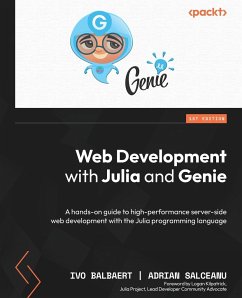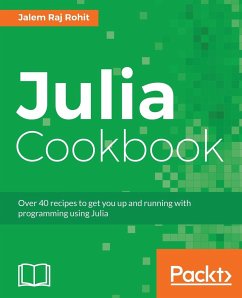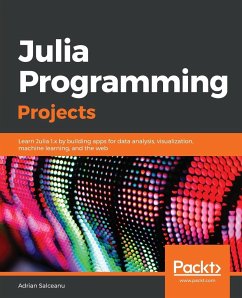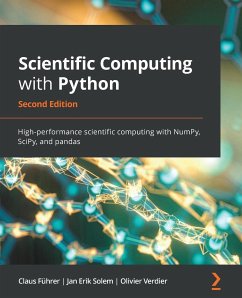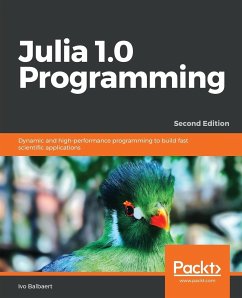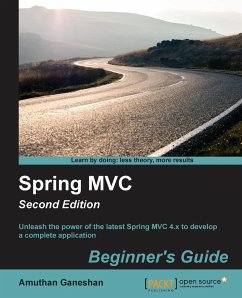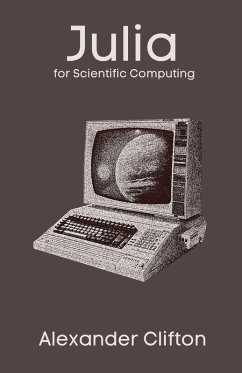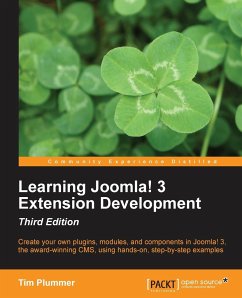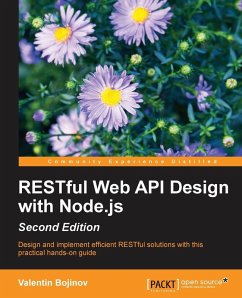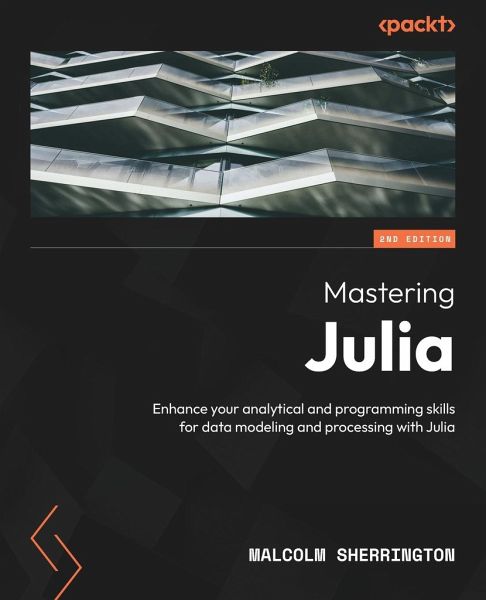
Mastering Julia - Second Edition
Enhance your analytical and programming skills for data modeling and processing with Julia
Versandkostenfrei!
Versandfertig in 1-2 Wochen
47,99 €
inkl. MwSt.

PAYBACK Punkte
24 °P sammeln!
A hands-on, code-based guide to leveraging Julia in a variety of scientific and data-driven scenariosKey FeaturesAugment your basic computing skills with an in-depth introduction to Julia Focus on topic-based approaches to scientific problems and visualisation Build on prior knowledge of programming languages such as Python, R, or C/C++ Purchase of the print or Kindle book includes a free PDF eBook Book Description Julia is a well-constructed programming language which was designed for fast execution speed by using just-in-time LLVM compilation techniques, thus eliminating the classic problem ...
A hands-on, code-based guide to leveraging Julia in a variety of scientific and data-driven scenariosKey FeaturesAugment your basic computing skills with an in-depth introduction to Julia Focus on topic-based approaches to scientific problems and visualisation Build on prior knowledge of programming languages such as Python, R, or C/C++ Purchase of the print or Kindle book includes a free PDF eBook Book Description Julia is a well-constructed programming language which was designed for fast execution speed by using just-in-time LLVM compilation techniques, thus eliminating the classic problem of performing analysis in one language and translating it for performance in a second. This book is a primer on Julia's approach to a wide variety of topics such as scientific computing, statistics, machine learning, simulation, graphics, and distributed computing. Starting off with a refresher on installing and running Julia on different platforms, you'll quickly get to grips with the core concepts and delve into a discussion on how to use Julia with various code editors and interactive development environments (IDEs). As you progress, you'll see how data works through simple statistics and analytics and discover Julia's speed, its real strength, which makes it particularly useful in highly intensive computing tasks. You'll also and observe how Julia can cooperate with external processes to enhance graphics and data visualization. Finally, you will explore metaprogramming and learn how it adds great power to the language and establish networking and distributed computing with Julia. By the end of this book, you'll be confident in using Julia as part of your existing skill set. What you will learnDevelop simple scripts in Julia using the REPL, code editors, and web-based IDEs Get to grips Julia's type system, multiple dispatch, metaprogramming, and macro development Interact with data files, tables, data frames, SQL, and NoSQL databases Delve into statistical analytics, linear programming, and optimization problems Create graphics and visualizations to enhance modeling and simulation in Julia Understand Julia's main approaches to machine learning, Bayesian analysis, and AI Who this book is for This book is not an introduction to computer programming, but a practical guide for developers who want to enhance their basic knowledge of Julia, or those wishing to augment their skill set by adding Julia to their existing roster of programming languages. Familiarity with a scripting language such as Python or R, or a compiled language such as C/C++, C# or Java, is a prerequisite.Table of ContentsThe Julia Environment Developing in Julia Types and Dispatch The Three Ms Interoperability Working with Data Scientific Programming Graphics Databases Machine Learning Working with Julia





